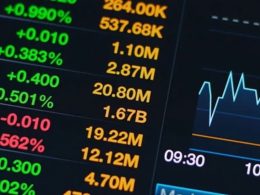by Stephen H. Dover, CFA, Franklin Templeton Investments
China was the first economy to institute COVID-19 lockdowns, and has been the first to gradually exit. While the economy is certainly not back to normal, our Head of Equities, Stephen Dover, still sees potential growth opportunities there for investors.
A new publication from our emerging markets equity team, “Investing in China: Consumers and Technology Recovering,” offers a window into a post-COVID-19 economic recovery.
China has been much in the news recently as it handles COVID-19 and political and trade tensions with the West. Our emerging markets team was on the cusp of publishing fresh thoughts on China in January when Beijing locked down China’s economy to flatten the COVID-19 infection curve. Although China’s economy is opening again, it’s not back to normal. Companies like Foxconn, which assembles iPhones for Apple, aren’t back to full employment due to sagging global demand.
- We continue to believe China remains a growth opportunity for investors.
- In early March 2020, the Chinese A-share market hit a 12-month high and was one of the world’s best-performing equity markets. A-shares represent domestic stocks trading on Chinese mainland exchanges in Shanghai or Shenzhen.
- The macro themes and companies our emerging markets analysts wrote of in January 2020 remain relevant to investors looking for growth opportunities today.
- Overall, retail activity is improving, but discretionary spending remains muted, while lingering anxieties over infections is accelerating consumer migration to more online purchases and home deliveries.
- Whether trade tensions eventually prompt companies like Apple to pull supply chains out of China remains to be seen.
In the near term, our Shanghai- and Hong Kong-based analysts believe the business prospects for some companies have brightened and that it is important to continue to stay close to the situation.
*****













